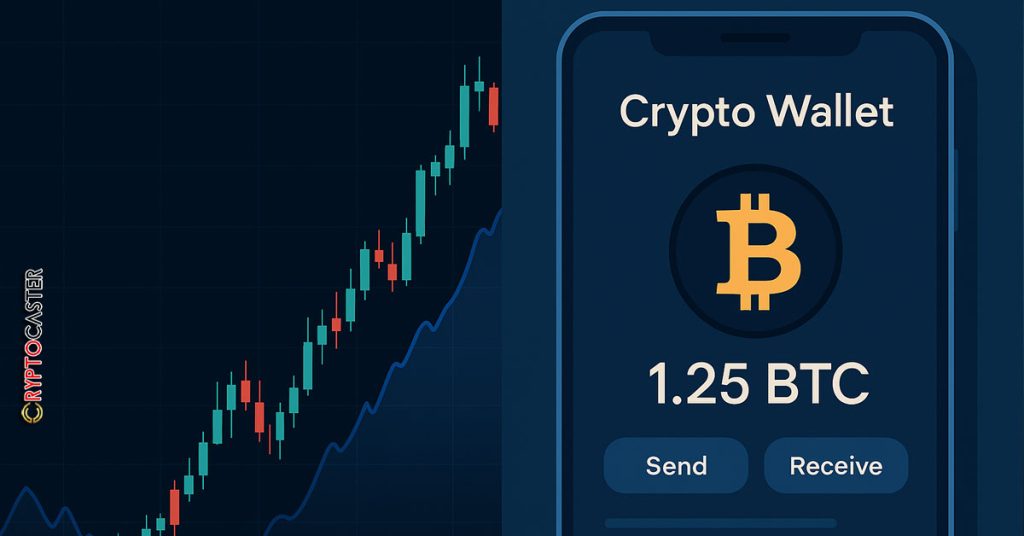Published: April 29, 2025
As cryptocurrency continues its march into mainstream finance, investors now face a critical decision: should you hold digital assets directly, or get exposure through regulated financial products like cryptocurrency ETFs?
With the launch of multiple spot Bitcoin ETFs across the U.S., Europe, and parts of Asia, institutional and retail investors alike are rethinking how they approach crypto as an asset class. But what are the real trade-offs between owning crypto outright versus investing in an ETF?
Let’s break it down.
🔒 Regulation vs. Autonomy
A cryptocurrency ETF (Exchange-Traded Fund) provides exposure to the price of a digital asset (like Bitcoin or Ethereum) through a traditional investment vehicle. These ETFs are regulated, publicly listed, and can be bought via standard brokerage accounts—no need for private keys, wallets, or new infrastructure.
Owning crypto outright, on the other hand, means taking full control. You hold the asset in a wallet, control the private keys, and can participate directly in the blockchain economy—from DeFi lending to NFT trading.
Which is better?
If you prioritize autonomy, privacy, and utility, owning crypto gives you full access. But if regulation and simplicity are your priorities, ETFs win.

🧠 Simplicity vs. Complexity
ETFs are perfect for investors who want exposure to crypto without the learning curve. There’s no need to understand blockchain, seed phrases, or bridge assets across chains.
Direct crypto ownership, however, requires a degree of technical literacy. Wallets can be lost, hacked, or mismanaged—and user error has historically accounted for billions in lost crypto.
That said, self-custody remains a core value of the Web3 movement: “Not your keys, not your coins.”
📈 Diversification & Tax Efficiency
Some crypto ETFs go beyond holding a single asset. They may include a basket of cryptocurrencies, equities of mining companies, or blockchain infrastructure stocks, offering passive diversification.
And in some jurisdictions (like the U.S.), ETFs can be held in tax-advantaged accounts like IRAs or 401(k)s. Direct crypto holdings typically generate taxable events with each transaction.
📊 Side-by-Side Snapshot
| Factor | Crypto ETF | Owning Crypto Directly |
|---|---|---|
| Ease of Access | Traditional brokerage, no special tools needed | Requires exchange + wallet setup |
| Security | Custodian-managed | User-managed (risk of loss/hacks) |
| Usability | No blockchain utility (just price exposure) | Full use in DeFi, NFTs, payments, etc. |
| Fees | Management fees (0.25–1%) | Exchange, gas, and custody costs |
| Regulatory Cover | High (SEC/FCA oversight) | Medium to low depending on region |
| Privacy | KYC-compliant | Optionally pseudonymous |
🌐 What’s Right for You?
Your choice depends on your investment profile:
- Long-term, passive investors may prefer ETFs for simplicity, tax benefits, and safety.
- Web3-native users and active participants in decentralized ecosystems will benefit more from direct ownership.
But for many, a hybrid approach—holding some crypto directly while diversifying through ETFs—may offer the best of both worlds.
🚨 Final Word
As the lines between traditional finance and crypto continue to blur, ETFs are playing a crucial role in onboarding the next wave of investors. But they’re not a substitute for the freedom, innovation, and direct utility that define the crypto revolution.
If you believe in decentralization, holding your own keys still matters. If you’re just seeking exposure to digital assets without the volatility of self-custody, ETFs make a compelling case.
Just remember: in crypto, control and convenience rarely come together. You have to choose what you value most.
For more guides on investing in Web3, visit Cryptocaster.world.
© 2025 CryptoEthos™ provides information and entertainment. CryptoEthos.com does not provide investment advice. Do your research before taking a market position on the purchase of cryptocurrency and other asset classes. Past performance of any asset is not indicative of future results. All rights reserved.
